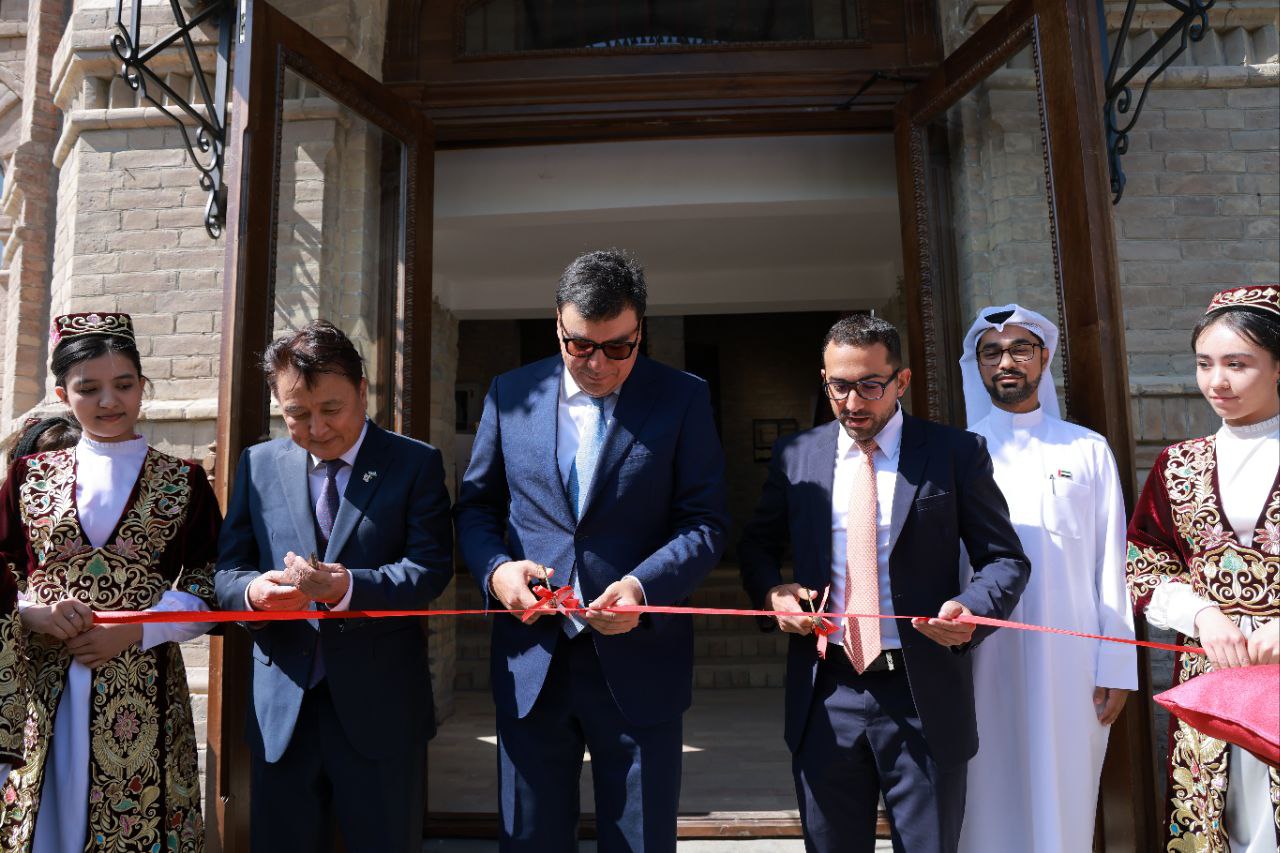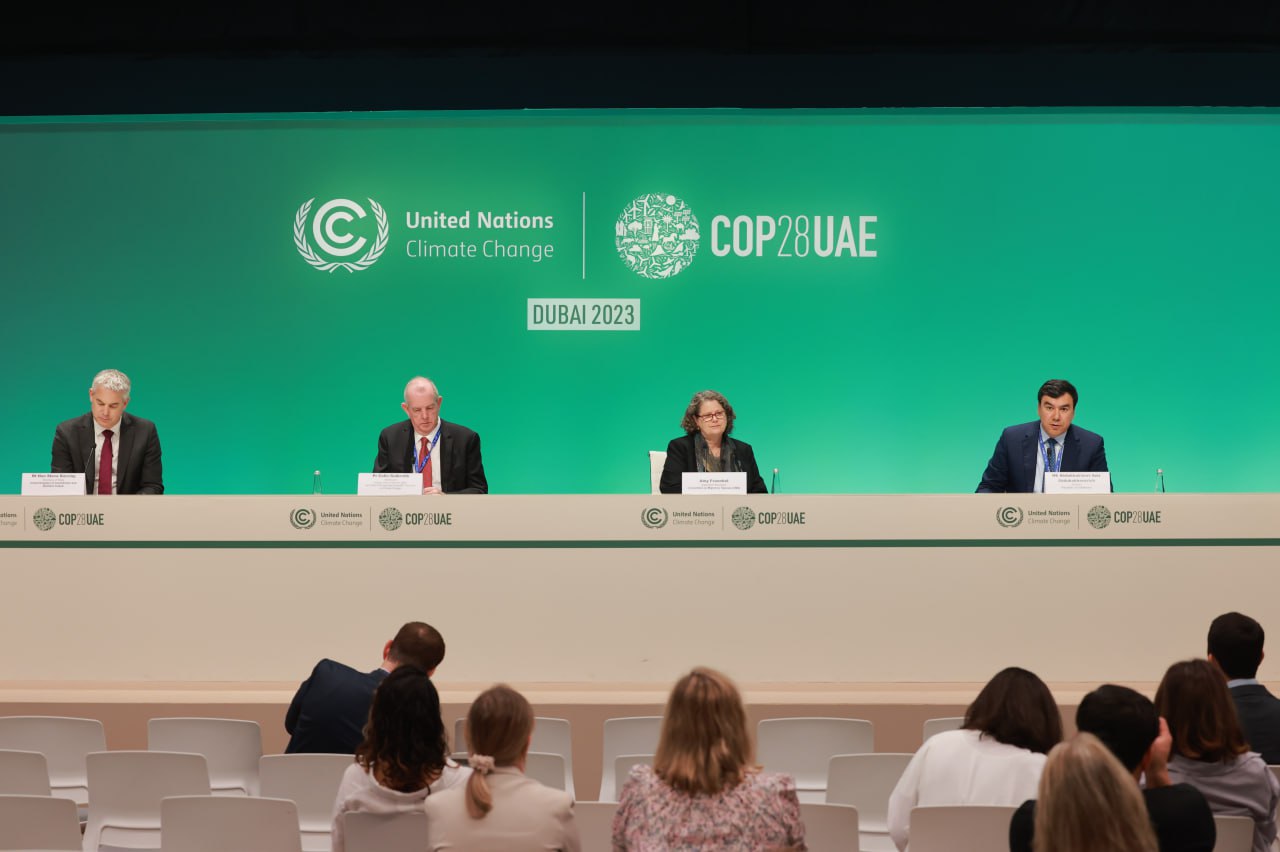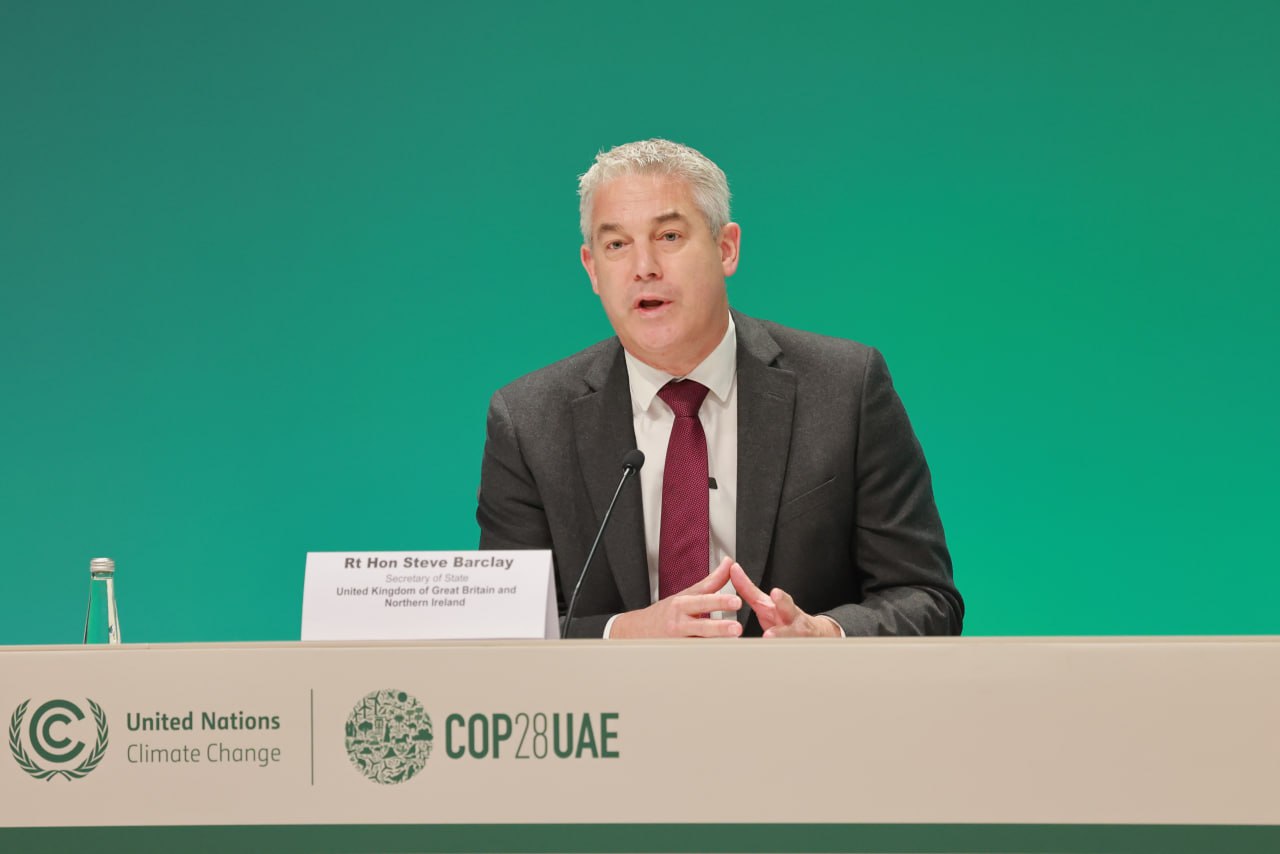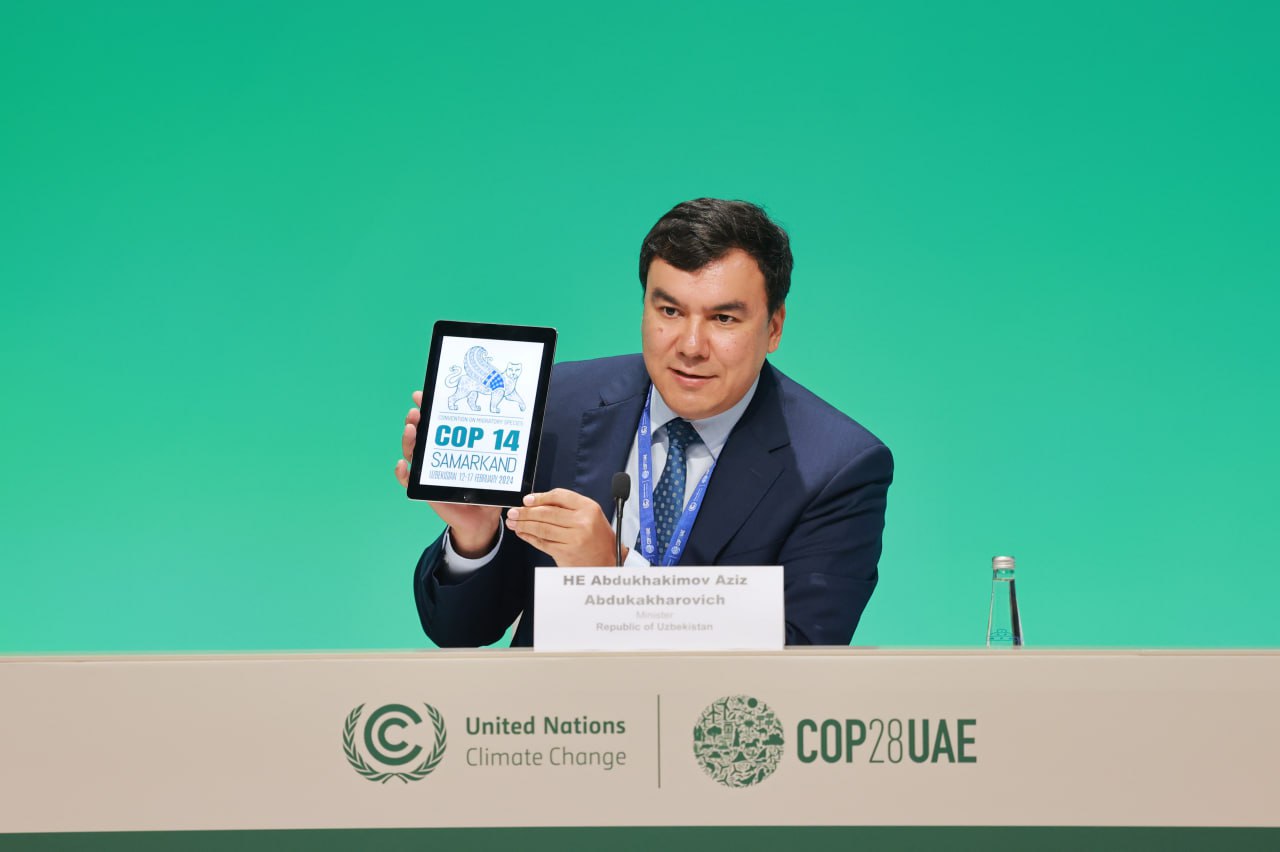
A press conference dedicated to the United Nations Convention on the Conservation of Migratory Species of Wild Animals was held in Dubai. The speakers at the press conference included Amy Frankel, the Executive Secretary of the UN Convention on the Conservation of Migratory Species of Wild Animals, Aziz Abdukhakimov, the Minister of Ecology, Environmental Protection, and Climate Change of the Republic of Uzbekistan, Steve Barclay, the Secretary of State for Environment, Food and Rural Affairs of the United Kingdom of Great Britain and Northern Ireland and former Chairman of JNCC and CMS COP, and climate change advisor Professor Colin Galbraith.

For reference, the comprehensive report presented will be showcased at the 14th Meeting of the Conference of the Parties to the Convention on the Conservation of Migratory Species of Wild Animals (CMS COP14) in Samarkand from February 12 to 17, 2024. You can review the full report by following the link.
Amy Frankel, the Executive Secretary of the UN Convention on the Conservation of Migratory Species of Wild Animals, noted that climate change directly affects many migratory species. As integral parts of ecosystems, animals support ecosystems by mitigating the consequences of climate change and enhancing resilience to climate risks.

"Nature is the foundation of our life: ecosystems, food security, water safety, and a healthy economy depend on all of us. The challenges faced by migratory species as a result of climate change underscore the need for coordinated global action to protect the environment. That is why the United Kingdom is taking a leading role in nature restoration efforts, halting biodiversity loss, and achieving ecological balance. By 2030, we aim to protect 30% of land and seas," said Steve Barclay, the Secretary of State for Environment, Food, and Rural Affairs of the United Kingdom.
The event highlighted the need for urgent measures to assist migratory species in adapting to the changing climate. It was noted that the creation of comprehensive and interconnected networks of protected areas and other effective conservation measures for migratory species is crucial to support their movements in response to climate change. However, in some cases, direct human intervention, such as the relocation of vulnerable species populations, is necessary.

"Uzbekistan is one of the countries most affected by the adverse effects of climate change, which has significantly contributed to ecosystem degradation, habitat loss, and biodiversity decline. The government of the Republic is committed to strengthening regional cross-border cooperation and supports efforts to conserve and protect biodiversity, migratory species, and taking action at national, regional, and global levels. Special attention will be given to these issues at the 14th Meeting of the Conference of the Parties to the Convention on the Conservation of Migratory Species of Wild Animals (CMS COP14), which will be held in Samarkand from February 12 to 17, 2024, under the slogan 'Nature Knows No Borders'," said Aziz Abdukhakimov, the Minister of Ecology, Environmental Protection, and Climate Change of the Republic of Uzbekistan.
For reference, the Convention on the Conservation of Migratory Species of Wild Animals (CMS) provides a global platform for the conservation of migratory animal species and the sustainable use of their habitats. This convention brings together governments and wildlife experts from around the world to meet the conservation needs of terrestrial and aquatic animals, as well as migratory bird species and their habitats. Since its entry into force in 1979, the convention has continuously expanded and now includes 132 participating countries from Africa, Central and South America, Asia, Europe, and Oceania.
It is worth noting that the report "Climate Change and Migratory Animal Species: Review of Impacts, Conservation Actions, Indicators, and Ecosystem Services" was commissioned by the government of the United Kingdom and presented with the support of the Nature Conservation Committee. The document was prepared by the Convention on Climate Change and the British Trust for Ornithology (BTO).
The British Trust for Ornithology (BTO) is a leading ornithological charitable organization in the United Kingdom, founded in 1932, and dedicated to securing the future of birds and nature. The foundation contributes to bird biology research, primarily focusing on studying populations and reproduction, bird ringing, thanks to the participation of a large number of volunteers.
The growing number of members and around 60,000 bird-watching volunteers contribute to BTO's research by collecting data that underpin bird conservation efforts in the United Kingdom. Organization staff analyze and publish survey and project results.
The report also notes that global warming will have a negative impact on many groups of migratory species. In particular, climate change affects the distribution and timing of their migration, creating a mismatch, for example, between the breeding season of waterbirds and the time when their prey species are most abundant.
It is worth noting that biodiversity is declining at an unprecedented rate worldwide, and climate change is one of the major factors contributing to this crisis. In 2021, leading scientists emphasized that biodiversity loss and climate change issues are interconnected and must be addressed together. Last year's Kunming-Montreal Global Biodiversity Program highlighted the importance of nature-based solutions in addressing climate change. The conservation of migratory species and their habitats is an important part of addressing both biodiversity and environmental issues.
"This report presents compelling scientific evidence that climate change significantly impacts many species that depend on migration worldwide. This affects the future of many iconic species. We need to raise global awareness that solutions are possible. We urge governments to use this report to take action and seek nature-based solutions that will help migratory species and reduce the consequences of climate change," said Professor Colin Galbraith, former Chairman of JNCC and CMS COP, climate change advisor.
For reference, JNCC stands for the Joint Nature Conservation Committee. It is the only nature conservation organization in all four countries of the United Kingdom that provides reliable scientific data and recommendations based on science and nature. With over 30 years of proven experience, dedication, and skills, JNCC contributes significantly to conservation and restoration efforts.
Changes in water supply lead to the disappearance of wetlands and a reduction in river flow, which affects the migration of fish and waterbirds. Climate-related landslides and similar extreme events cause significant habitat disruption. Migratory species are essential for ecosystem functioning and mitigating the impacts of climate change. Many migratory species are involved in the dispersal and distribution of seeds and nutrients. They also contribute to reducing coastal erosion.
In conclusion, the press conference emphasized the need for strengthened collaboration to protect migratory species from the adverse effects of climate change.











